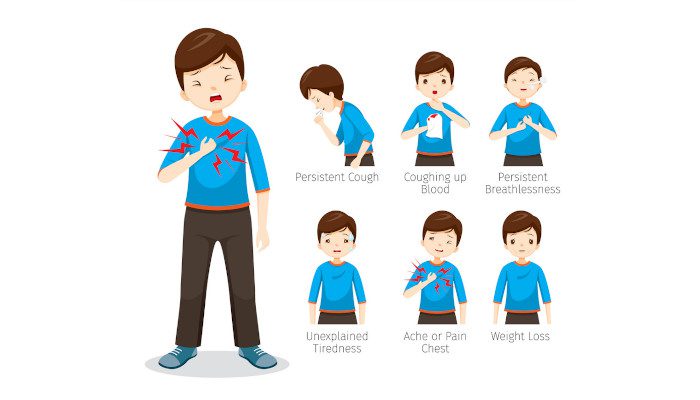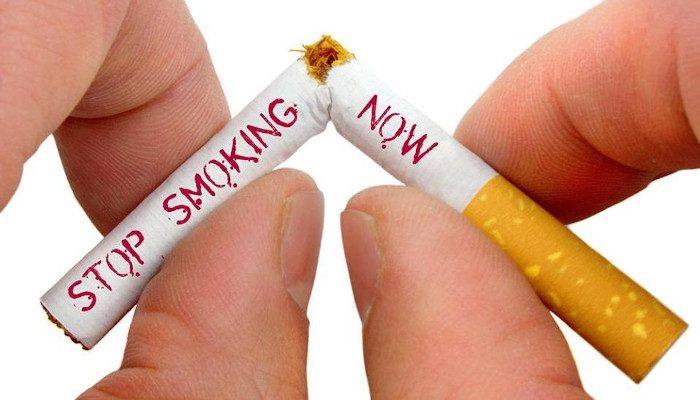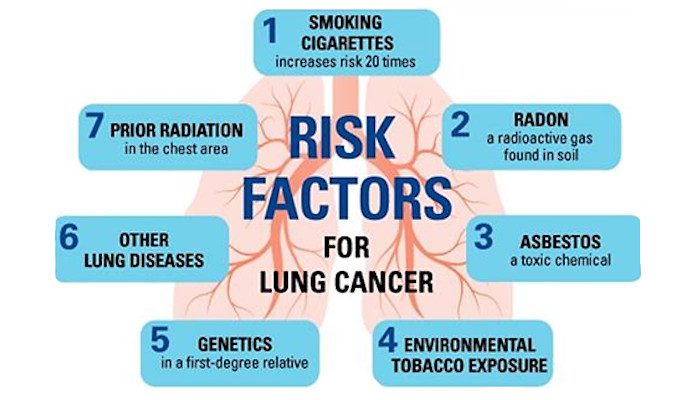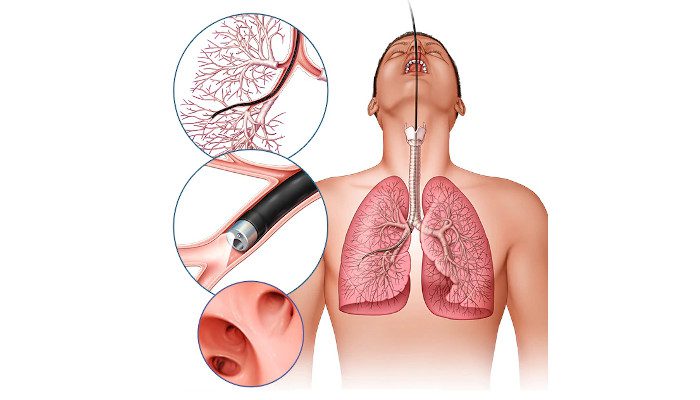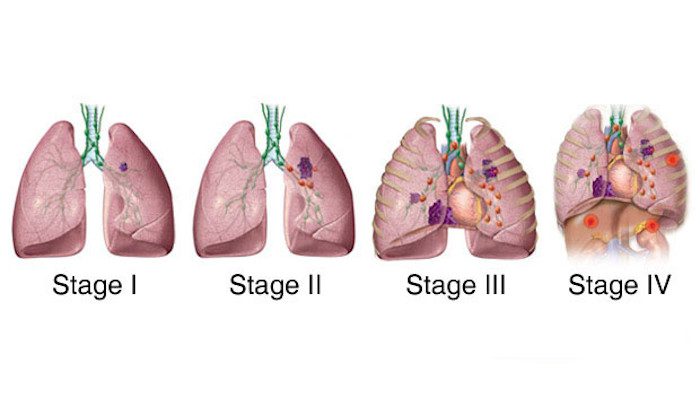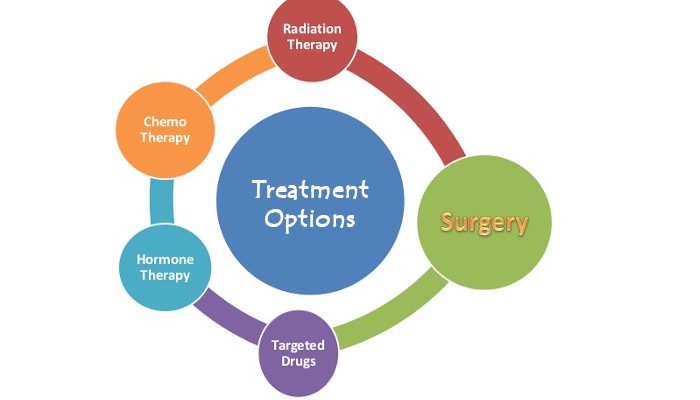Despite what many believe, lung cancer isn’t limited to smokers. Non-smokers are also at risk when they’re exposed to cancer-causing agents.
Abstaining from cigarettes doesn’t guarantee complete protection from lung cancer.
Smoking is the main cause of lung cancer and should be avoided. But non-smokers can also suffer from this disease.
Lungs can be exposed to carcinogens (cancer-causing substances) through other means. This may include secondhand smoke, exposure to radiation, etc.
The misconception that only smokers get lung cancer is harmful. It stigmatizes patients by creating a false impression that they are responsible for their condition. It may also cause people who don’t smoke to dismiss symptoms. They may delay getting treatment until it’s too late.
So, we need to look at other possible causes of lung cancer and take precautions.
Causes Of Lung Cancer In Non-Smokers
Non-smokers may be exposed to factors that cause mutations or changes in their lung cells. Some causes of lung cancer in non-smokers include:
- Secondhand smoke: A non-smoker’s risk of getting cancer increases with the amount of secondhand smoke they inhale near a smoker. The smoke may come from the lit end of a cigarette or might be exhaled during smoking. Both kinds are hazardous to health.
- Radon exposure: Radon is the next greatest cause of lung cancer after smoking. The gas may be present in buildings. It breaks down into tiny particles that damage lung cells.
- Asbestos exposure: Many old buildings have materials that contain a cancer-causing mineral called asbestos.
- Radiation: Exposure to radiation, like during radiation therapy, might be a cause.
- Family history: People with relatives suffering from lung cancer are at risk of it.
- Genetic: Mutations in lung cells may lead to cancer.
- Air pollution: Areas with high air pollution see a high number of cases.
Symptoms
Most people don’t develop symptoms until the advanced stages of lung cancer. These may include:
- A new cough that persists
- Blood in cough (even small amounts)
- Shortness of breath
- Chest pain
- Hoarse voice
- Pain in bones
- Unexplained weight loss
- Headache
Consult your doctor if any of these symptoms persist and worry you.
How To Prevent It?
Preventing cancer isn’t always in our hands but you can reduce the risk with the following steps:
- Do not smoke: Every cigarette you have increases your risk of getting cancer dramatically. While abstaining from smoking isn’t a foolproof way to avoid cancer, it’s one of the most effective ways. So, don’t start smoking even out of curiosity.
- Avoid secondhand smoke: Request smokers to avoid smoking near you. Avoid areas where people like to smoke. Seek non-smoking zones when going out.
- Eat fruits and vegetables: A healthy diet with different types of fruits and vegetables can reduce the risk considerably. They are rich in vitamins and other nutrients. But you should avoid vitamin supplements because they may increase the risk according to some researchers.
- Avoid carcinogens at work: If your work involves dealing with chemicals, you need to take precautions to avoid inhaling them. Follow safety guidelines set by the employer and wear safety kit provided for the job.
- Exercise: Working out most days of the week can reduce the chances of getting the disease.
It takes a few tries before you can overcome smoking addiction. You need to distract yourself from the cravings to quit smoking.
Abstaining from cigarettes and other tobacco products is hard. But it is the right step towards a healthy life.
You may notice your heart rate become normal just twenty minutes after quitting. It reduces the risk of cardiovascular disease, lung cancer and chronic obstructive pulmonary disease.
Many smokers are aware of the health risks but are unable to quit. They get strong urges when they try to quit, due to which they tend to relapse. But you can overcome the hold these cravings have on you.
Schedule Quit Day
Some preparation before quitting can be helpful. Decide when to quit, preferably within the next few weeks. You can either reduce your intake until the quit day or continue as you do before going cold turkey.
Clean Up
You need to remove smells and sights that remind you of smoking from your home and car. Dispose of cigarettes, ashtrays and lighters. Wash your clothes, carpets, etc. and use air fresheners.
Consider Nicotine Replacement Therapy
Nicotine replacement therapy can help you resist cravings. Your doctor may recommend:
- Nasal sprayer or inhaler with prescription nicotine
- OTC nicotine patches, lozenges or gum
- Prescription medicines without nicotine like bupropion and varenicline.
Take Help
Inform your family and other close ones about your decision to quit smoking. People who have successfully quit can be helpful. Request other smokers to not smoke near you.
You can sign up at a support group. Many groups offer free counselling and nicotine patches.
Resist
Resist the temptation to have just one drag. The temptation usually passes after ten minutes. Distract yourself through other activities like chewing gum, exercising, etc.
Identify Triggers
Your urge to smoke might be the strongest during some situations. Identify and plan how to deal with them.
For example, if you light a cigarette when drinking alcohol, cut your intake. If it happens when you talk on the phone, doodle with a pen to keep your hand busy during the call.
Unwind
Stress is one of the most common triggers of smoking. Avoiding stressful situations can reduce urges considerably.
Try relaxation techniques like yoga and tai chi. Exercise to blow some steam, make time for your hobby or get massage therapy.
Become Active
Physical activity is effective at distracting you from the temptation to smoke. It doesn’t have to be intense. Even short bursts like running on the stairs or taking a walk can help.
Think Of Your Motivation
Different people have different reasons for wanting to quit tobacco products. These may include:
- Wanting a healthier lifestyle
- Wanting to live long
- Protecting loved ones from secondhand smoke
- Trying to set a good example for children
Remind yourself of your reason and motivate yourself to overcome the temptation to light a cig.
Try Again
Quitting smoking is harder than it sounds, so it’s understandable if you give in to your craving. Many people need multiple tries before they quit completely. So, don’t get discouraged by it.
Think about what triggered you to take a drag and plan for how to avoid it for your next try.
